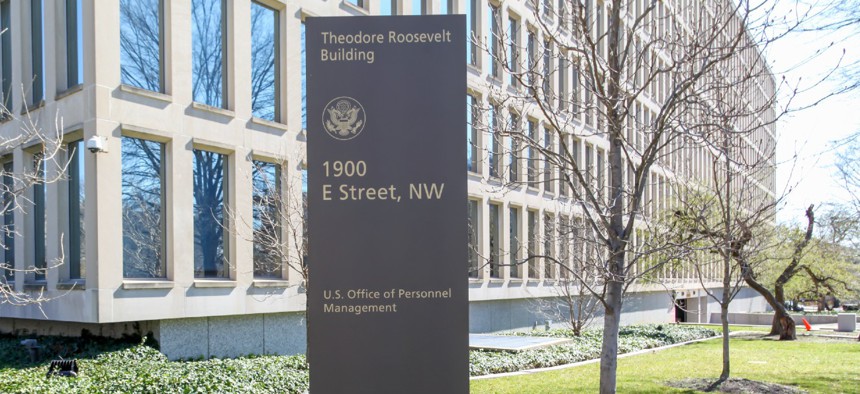
JHVEPhoto / iStock.com
OPM Has Improved on Several Key Management Issues, Watchdog Finds
GAO lauded OPM’s efforts to reform performance management processes and provide better data to agencies, although 14 recommendations remain unresolved.
A federal watchdog agency last week reported that the Office of Personnel Management has taken steps to address several key issues highlighted in oversight reports during the last year, although it still has work to do.
The Government Accountability Office on July 8 published its annual report on open “priority” recommendations for the federal HR agency. Since April 2020, GAO found that OPM had adequately addressed four of its 18 outstanding priority recommendations, while the watchdog agency did not add any new items to the list.
GAO cited several recent innovations that it said will help OPM address governmentwide human capital management, an issue that has been on the watchdog’s biennial High Risk List for the last 20 years and where agencies have regressed recently due to lack of committed leadership at OPM. Officials specifically highlighted OPM’s use of MAX.gov to collect and share information on mission-critical occupations and hiring, along with several other improvements to how it helps other agencies.
“To assist agencies on performance management issues, OPM created standard operating procedures and updated information posted on its performance management website on a quarterly basis,” GAO wrote. “OPM also updated its employee engagement toolkit for supervisors to share key practices and lessons learned, including how to address employee misconduct . . . With these actions OPM has provided agencies with human capital management guidance needed to cultivate and manage their workforces.”
Additionally, GAO touted OPM’s implementation of a quality assurance review process to improve the agency’s IT security and management.
Although 14 priority recommendations remain open, GAO said that in many cases, OPM has made some progress toward fixing these issues. This includes the issue of the updating the federal job classification system at the heart of the General Schedule pay scale.
“According to OPM, it has made incremental improvements to the classification system by providing technical assistance to agencies and more efficiently completing occupational studies,” GAO wrote. “However, OPM reported that, in order to more fully pursue the recommendation, it would need appropriations to establish a commission to review the General Schedule System. Regardless of the approach for doing so, to fully implement the recommendation, OPM still needs to work in conjunction with key stakeholders such as [the Office of Management and Budget] and unions; complete its review of studies and lessons learned; and, if warranted, develop a legislative proposal to make the GS system’s design and implementation more consistent with the attributes of a modern, effective classification system.”
The watchdog also applauded OPM for its efforts to help agencies respond to the COVID-19 pandemic through the use of hiring and special payment authorities, although it found that the agency still needs to collect data and analyze which of those authorities were effective. In May, OPM provided additional information on its efforts on this front, although GAO has not completed its review of the latest update.
OPM is in the process of planning or developing initiatives to address several other open recommendations, like improving its database on staffing and payroll matters to help agencies make better staffing decisions, the first phase of which is due early next year. And officials are developing multiple initiatives aimed at making it easier for managers across the federal government to deal with poor performers, a long-running complaint from federal workers.
“In March 2021, OPM reported that it began taking steps to provide guidance on training supervisors and human resources staff on addressing employee misconduct,” GAO wrote. “OPM stated that, going forward, it will update online training courses and classroom materials for addressing misconduct and make the training materials available to agencies . . . OPM [also] reported developing a repository for agencies to routinely share promising practices and lessons learned related to employee engagement, accountability and performance management. However, OPM told us this initiative is in its early phases of development.”







